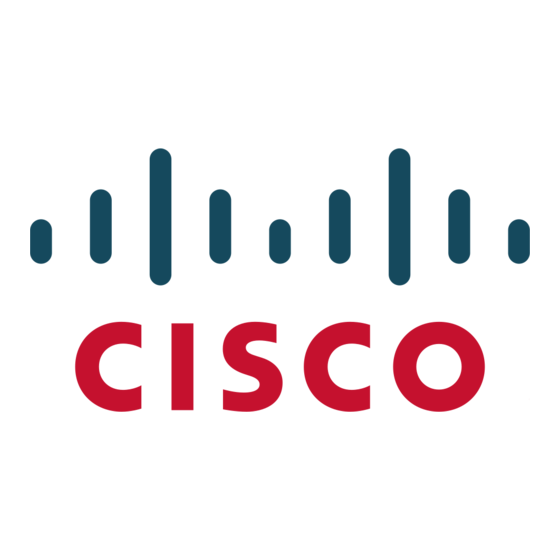Cisco TelePresence System Codec C60 시작하기 매뉴얼 - 페이지 41
{카테고리_이름} Cisco TelePresence System Codec C60에 대한 시작하기 매뉴얼을 온라인으로 검색하거나 PDF를 다운로드하세요. Cisco TelePresence System Codec C60 46 페이지. Telepresence c series
telepresence mx series
telepresence sx series
telepresence ex series
Cisco TelePresence System Codec C60에 대해서도 마찬가지입니다: 사용자 설명서 (44 페이지), 시작하기 매뉴얼 (42 페이지), 문제 해결 매뉴얼 (37 페이지), 설치 매뉴얼 (2 페이지), 사용자 설명서 (48 페이지)

Cisco TelePresence Video Systems
Contents
The System Configuration page on
the web interface
You open the web interface by entering your video conference
system's IP address in the address bar of a web browser; then
you sign in.
When signed in, you can open the System Configuration page
from the Configuration menu.
You can access all configuration settings from this page.
All settings are not available on all products; therefore the folders
shown to the right may or may not be present on your system.
You can find a complete description of the web interface and
the settings in the administrator guide for your system.
D14639.15 Video Systems Getting Started Guide TC7.2, OCTOBER 2014.
Introduction
User interfaces
Configuration
The System configuration menu
The settings are arranged with the following top level categories:
•
Audio:
Settings for microphones, audio outputs, echo control, volume,
sounds, alerts, and more.
•
Cameras:
Settings for focus mode, brightness, whitebalance,
backlight compensation, options like flip and mirror, and more.
•
Conference:
Conference settings like transmit and receive bit rates,
bandwidth allocation, incoming call handling, encryption, packet loss
resilience and far end control.
•
FacilityService:
Setting up speed dial buttons for facility services,
e.g. Helpdesk.
•
GPIO:
Definition of the GPIO pins.
•
H323:
All H.323 protocol settings.
•
Logging:
Set logging mode (not applicable in this software version).
•
Network:
IP, VLAN and QoS settings.
•
NetworkPort:
Enable/disable the codec's second Ethernet port.
•
NetworkServices:
Telnet, SSH, HTTP, HTTPS, SNMP, H323, SIP and NTP.
•
Phonebook Server:
•
Provisioning:
Settings for provisioning mode, manager address and
protocols and methods.
•
RTP Port Range:
•
Security:
Settings for an audit server and error logging.
•
SerialPort:
Enable or disable the serial port, and set its baud rate.
•
SIP:
All settings for the SIP protocol.
•
Standby:
Configure when the system should enter standby and how
it should behave when entering/leaving standby mode.
•
SystemUnit:
Settings like system name and type, and menu language
selection.
•
Time:
Date and time settings.
•
User Interface:
Touch controller settings.
•
Video:
Settings for video sources and monitors, and video display
set-up and layout.
41
Getting Started Guide
Appendices
Appendices
Enable/disable the network services: Multiway,
Phonebook type and location.
RTP port numbers.
Copyright © 2010–2014 Cisco Systems, Inc. All rights reserved.
Contacts
